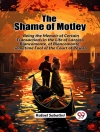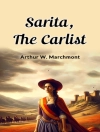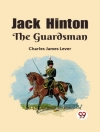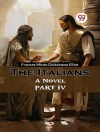In ‘The Lost Pirate Republic, ‘ readers are invited to traverse the tumultuous waters of maritime history and delve into the lore of high-seas adventurers beyond the familiar tales of piracy. This anthology’s collection of narratives and accounts sheds light on the diverse experiences of pirates who shaped the age of discovery in their defiant bids for freedom and fortune. The compilation skillfully blends authentic historical accounts with fictionalized adventures, offering fresh insights into the era’s cultural and social dynamics. Highlighted within the pages are tales of daring exploits and intricate moral dilemmas, capturing both the chaotic allure and harsh realities of pirate life. The anthology features the contributions of renowned literary icons like Daniel Defoe, famed for his vivid storytelling, combined with the engaging sagas of Charles Ellms and Captain Charles Johnson, whose writings forge a vivid tapestry of nautical history. Each contributes uniquely, intertwining historical narratives with literary refinement, exploring themes rooted in society, rebellion, and identity. Their collective works align with the broader cultural movement seeking to demystify and humanize the maritime rogues, providing readers an unparalleled depth of understanding through varied historical contexts and authorship. ‘The Lost Pirate Republic’ is essential for anyone eager to explore the confluence of history and narrative fiction. It offers a captivating venture into the epoch of seafaring nonconformists, where the texture of detailed, diverse accounts fosters a dialogue across centuries. With its rich array of perspectives and styles, the anthology is an invaluable resource for enthusiasts of maritime history, literature scholars, and any reader yearning for a profound exploration into the real and imagined lives of those who navigated the edges of legality and legend.
About the author
Daniel Defoe (c. 1660 – 1731) was an English trader, writer, journalist, pamphleteer, and spy, now most famously known for his novel ‘Robinson Crusoe’. Defoe is notable for being one of the earliest proponents of the novel, helping to popularize the form in Britain, and is among the founders of the English novel. ‘The Lost Pirate Republic’ could either be a misattributed or fictional work not recognized amongst Defoe’s main corpus; however, his oeuvre indeed comprises titles on piracy, such as ‘A General History of the Pyrates’. His literary style was innovative, realistic, and detailed, enabling readers to engage with the narratives as though they were factual accounts, which helped his novels achieve wide appeal. Defoe’s work is marked by his varied life experiences, which included a diverse array of professions and multiple brushes with the law, including time spent in prison for his political activities. His literary contributions extend well beyond the novel, with a prolific output of over 300 works ranging from political pamphlets, to poems, to journalistic texts. His notable works other than ‘Robinson Crusoe’ include ‘Moll Flanders’, ‘Captain Singleton’, and ‘A Journal of the Plague Year’, each contributing to his status as a literary pioneer and offering valuable insight into early 18th-century English society.












